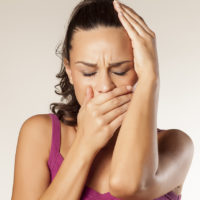Causes Of Jaw Pain Anxiety

Like all joints in your body, the temporomandibular joint can suffer from osteoarthritis, the wear of the joints due to anxiety. Rheumatoid arthritis can also be the cause of the temporomandibular joint, as this inflammatory disease can erode cartilage and bone and weaken the joint. Often a dentist first diagnoses a patient with TMJ. Your dentist will most likely notice the effects of grinding and pressing, which often occurs during sleep. Your dentist may also notice if your bite alignment is off or if you have a weak bite. All of these things can be factors in TMJ syndrome.
If with surgery and having jaw pain, go to www.drplasticsurgerymelbourne.com.au/ to know possible effects and health practice when in such situation.
My elderly patients are not the only ones experiencing TMJ. An injury to the jaw can lead to temporomandibular joint complaints that appear untreated. Anxiety is also a major cause and can occur at any age. It tends to cause the grinding and pressing that weaken and strain the jaw. If you find yourself grinding during the night (perhaps your spouse has noticed), I would suggest trying some stress reduction techniques first, such as therapy, massage, or meditation.
 The most common TMJ symptom is pain in the jaw area. You can also have sore shoulders, neck or back. Pain during eating and dysphagia are irritating, but common signs. You can hear clicking and crackling noises when talking or chewing because of improper jaw alignment.
The most common TMJ symptom is pain in the jaw area. You can also have sore shoulders, neck or back. Pain during eating and dysphagia are irritating, but common signs. You can hear clicking and crackling noises when talking or chewing because of improper jaw alignment.
This misalignment can also cause facial swelling, headaches, dizziness and nausea. Due to proximity, the temporomandibular joints may have an effect on the ears, causing ringing or hearing problems. In extreme cases of temporomandibular joint syndrome, the jaw can be closed. In this case, you should seek treatment immediately.
TMJ problems can be alleviated relatively quickly, provided you practice good habits of self-sufficiency. If you are prone to TMJ pain, avoid chewing gum and break the habit of chewing on fingernails or pins. When symptoms flare up, your goal should be to give your jaw much needed rest. This means switching to soft foods, supporting the palatine bones with the back of the hand and relieving pressure with a neck support pillow or rolled-up towel.
You can reduce the risk of jaw pain anxiety every day by keeping a good posture. When sitting at your desk, be careful not to point your chin forward. If you also have back pain, a chiropractor may be able to correct misaligned joints in your spine and pelvis, as well as the temporomandibular joint.


